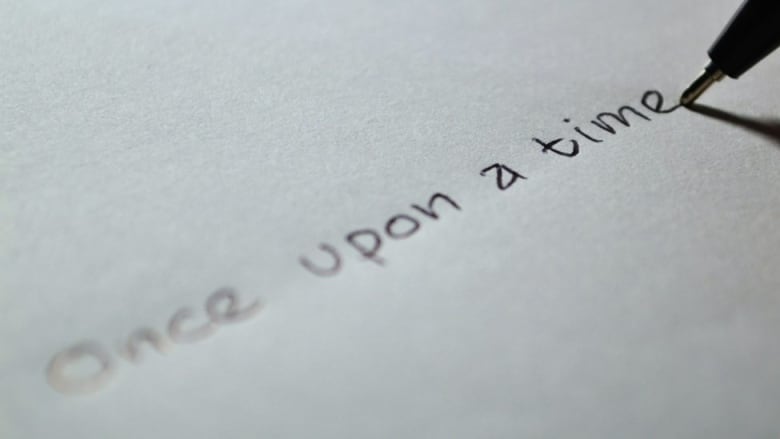Happy Spring, U of T! Last week, I had the pleasure of going to the “Speaking to Power with Clarity and Effectiveness” event, which included a special presentation by the University of Toronto’s Poet-In-Community, Ronna Bloom. The event was extremely informative, with a great mix of creative writing, strategy sharing, and informed discussion around why it can be difficult to ask for accommodations, and how putting ourselves in a vulnerable position can be so overwhelming. As students with disabilities, this is a space we’re treading in quite often, and this event helped us to go about this conversation differently. What I most enjoyed at the event was the introduction to ‘free writing’, which has changed the way I write.
I’ve been studying at the University of Toronto for three years now, and I can confidently say that the constant academics have killed my creativity in writing. I often feel uninspired and empty, having so much to say but not knowing what words to use to express how I’m feeling. My vocabulary seems stocked with terms and textbook definitions, but I’m unable to communicate my emotions through writing anymore. When I open up a page in my journal, the lines on the page seem so daunting. If I’m trying to clear my head, I get caught up in the propriety of my writing, the judgement I feel when it’s not as good as it can be, and every other self-criticism that exists for everyone else.
At least, that’s how it was before I learned how to ‘free write’. Free writing is what Ronna described as writing without any mental barriers or extensive thinking. Ronna outlined a couple of rules to this exercise that I’ve included below. Keep in mind that these are meant to be general, if a rule doesn’t work for you, throw it out the window and add one of your own.
- Don’t think. This one seems impossible at first, but the idea is to write whatever pops into your head, and to spend the least amount of time possible on pondering what words to use, going with impulsivity instead of meticulousness.
- Keep your hand moving. Try not to get too caught up in the details of what you are writing, just keep your hand moving across the page. Ronna mentioned a great tip for when you’re feeling stuck, which is to write “I’m stuck” over and over again until something else comes up. Remember, no judgement is the key to free writing.
- Don’t censor. Don’t be afraid to write the worst crap possible. You are under no obligation to share your writing with anyone else, so write whatever comes into your mind, however messy it seems.
- Don’t restrict your thinking. If English isn’t your first language, write in whatever language you feel clearly expresses your truth. Language shouldn’t be a restriction to your creativity.
To inspire some thinking, Ronna read to us a poem by Rita Joe, titled “I Lost My Talk”. This poem truly is a wonderful piece of work, and you can read it here:
https://www.poetryinvoice.com/poems/i-lost-my-talk. After she read the poem, she armed us with paper and pens, and sent us on our way, to find our own talk. Although sharing my writing publicly can be terrifying, I wanted to include an excerpt from the free writing I did during the event. What I wrote is messy, sloppy, and not the best work I’ve ever produced. But that’s the point of it, to capture a snapshot of your mind in one, specific moment, no matter how chaotic.
“Right now, I feel…. introspective. The poem by Rita Joe has me thinking about all the different types of “talk” there is in the world, and what has shut down my talk. Where is my talk? Where did I lose it? Was it the constant battle I have been fighting with mental illness that took the words out of me? Is it my school, or the seriousness of an academic institution that has made me stuff my creativity into a box and tape it shut? My poetic mind has been replaced with proper sentence structure, thesis statements, and MLA format. I fear that the dusty attic of my mind has been left alone for too long. I would like to find my talk again, among the academics and propriety. Maybe I’ll find it hiding in the pages of dusty textbooks and novels once cherished. Maybe it’s resting, waiting for me to wake it when I’m done with writing essays and editing labs. Or maybe I’ll make a new talk, one fit for the person I am now. One that indicates the messy, sincere growth that I’ve experienced. A talk that reflects everything I have become during my time on this planet, and everything that I aspire to be.”
Free writing is a great exercise for when your mind is feeling cluttered, and you want to express yourself through your words. It’s also a great way to clear your mind for when you’re feeling stuck with academic work. I truly hope you all give this a try; just set a timer for a couple of minutes and see what you can come up with. Feel free to leave your experiences with writing below, I would love to hear what you all think. Until next time, U of T.



0 comments on ““Free Writing”: reclaim your creativity”